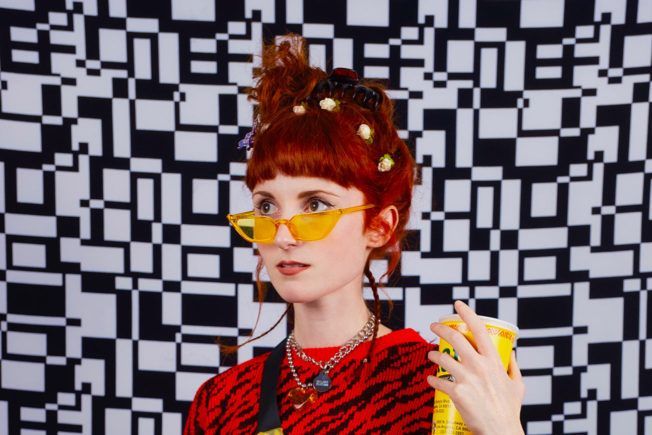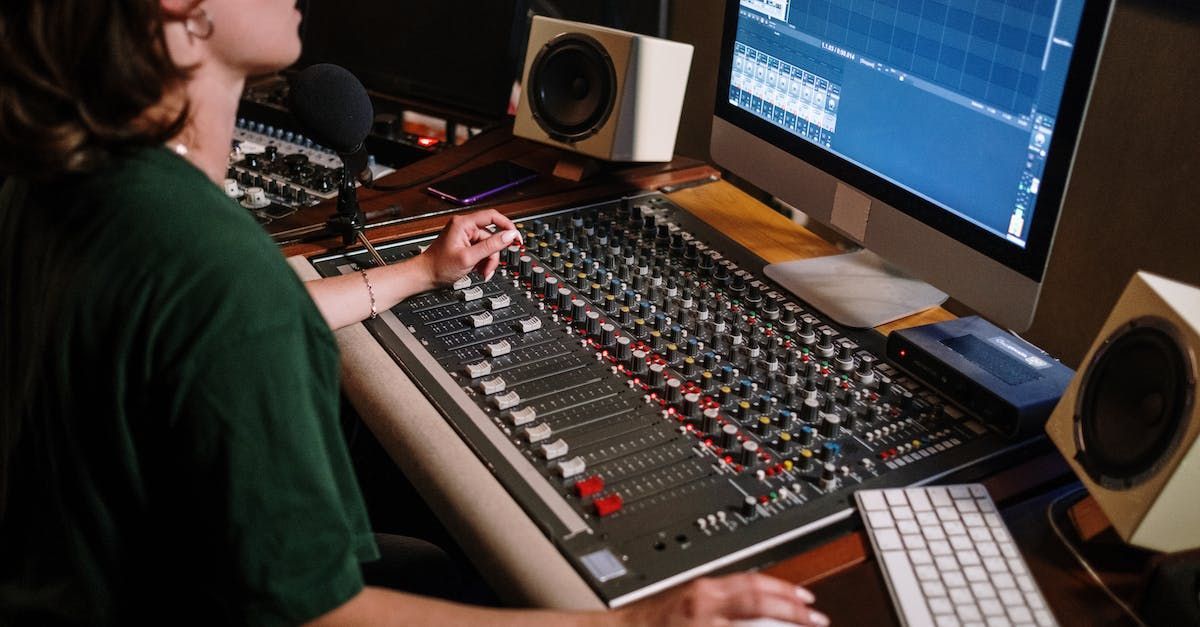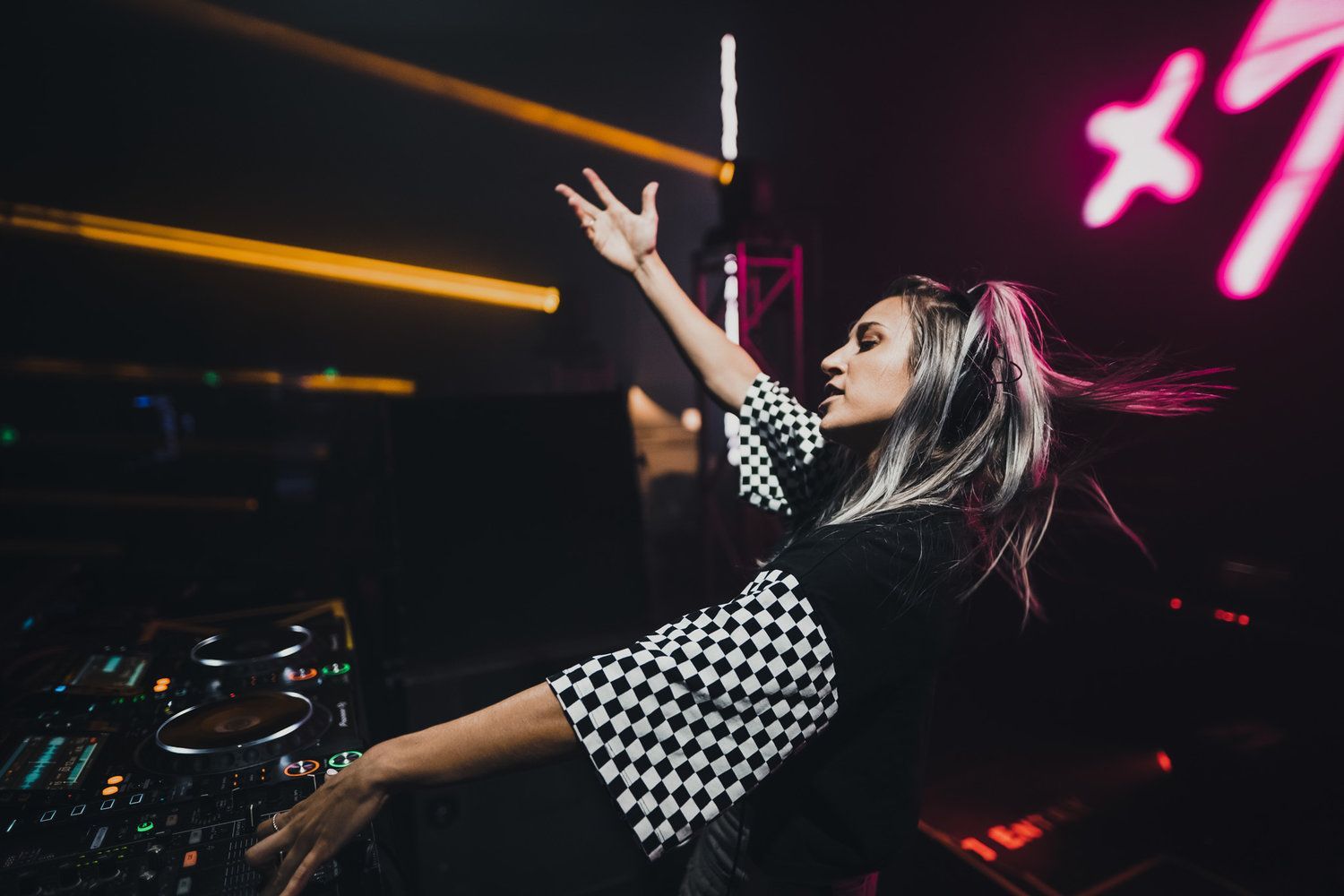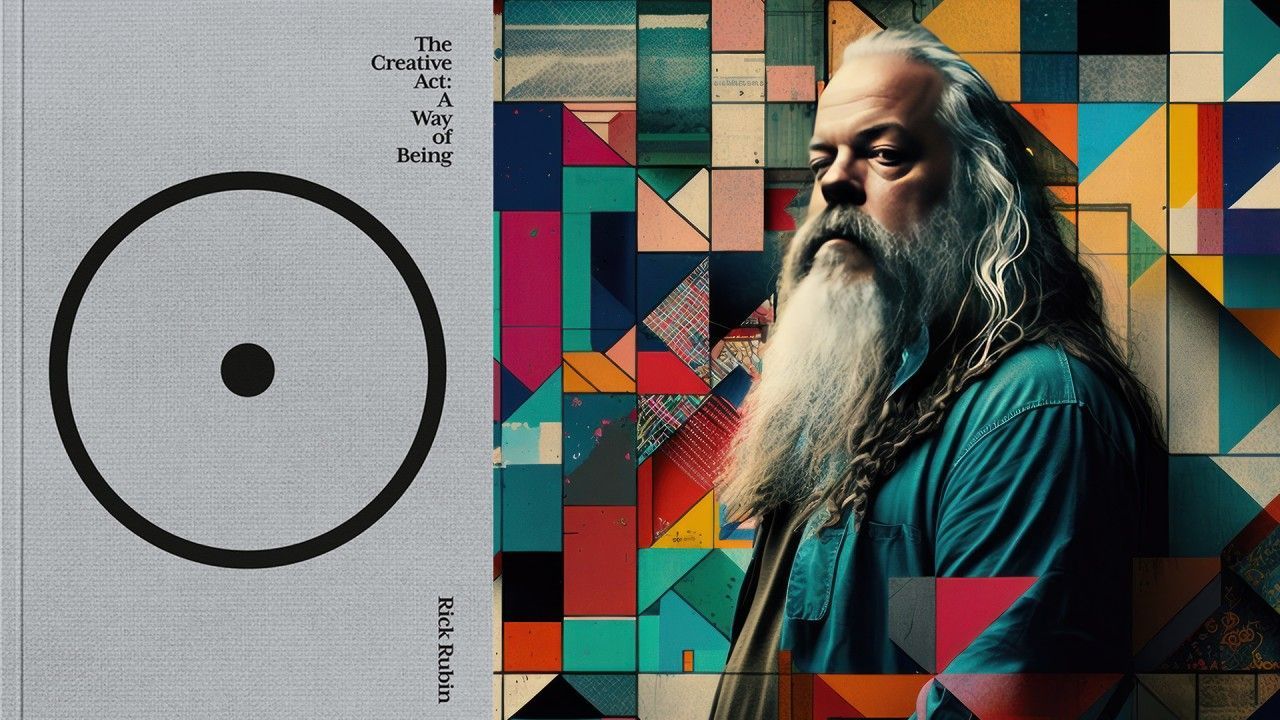Our August 2019 Student Spotlight features ICON graduate Soul Bandit, an innovative producer and visual artist who pioneered her own genre of music called “Ghoul Pop.”

Introducing Soul Bandit
At ICON, our goal isn’t just to help our students become better producers or songwriters. We want our students to find their unique voice as artists, and upon graduation, have the confidence to share that voice with the world. Andi Mattingly — who makes music under the name Soul Bandit — has not only shared her singular affinity with electronic music but has even gone as far to (unintentionally) develop her genre of music known as “Ghoul Pop.”
Ghoul pop doesn’t adhere to traditional genre strictures like tempos or sound aesthetic. Andi has used this level of artistic freedom to produce music that’s very diverse but also exists within the Soul Bandit identity.
Pair this level of individuality with an unmistakable visual style and a knack for circuit-bent synths, and Soul Bandit is an artist who defines originality. Follow her socials to keep up with her latest releases!
Soul Bandit Interview
We spoke to Soul Bandit about how she developed her profile as an artist, how she developed her original sound of “Ghoul Pop,” her unique visual style, and more!
1. What was the most important lesson from your time at ICON? How did ICON shape Soul Bandit?
Hmm. The most important lesson I learned at ICON was probably to stay true to yourself as an artist and not chase a sound/aesthetic that’s popular. I didn’t know what kind of music I wanted to make when I entered ICON. Taking the time (and I mean years) to hone in on myself to find my sound and branding was the best decision I ever made.
Also, it’s not a race. If we’re rushing into things, I feel like we’re not really trying to carefully set ourselves up for a career with longevity. The journey will take time and present many obstacles. So, taking it day by day, enjoying the ride, and not being overly eager to reach the destination is SUPER important. In the end, when we’re looking back at our lives, the destination was the journey!
2. You categorize much of your music as “Ghoul Pop.” How would you describe this sound in your own words? How did you develop this sound?
Haha, well truthfully, Ghoul Pop came to mind the morning I released my first song. As I was labeling the track genre on SoundCloud, it just popped up in my head. I cackled to myself for a second, and then just slapped it on there thinking nobody would take notice. But funny enough, EVERYONE took notice! So, it just became a genre I pioneered accidentally. It’s hard for me to describe because a lot of the tracks are actually quite different from one another. But I think NEST HQ called it “glitchy yet hypnotic.” Honestly, that’s the best description I’ve heard yet.
3. A unique and whimsical visual aesthetic accompanies your music and social presence. How does this imagery relate to your music and your persona as an artist?
This is a fun question because I could think of a dozen ways to respond, but there is no single answer. One answer is that I like taking the absurdist approach and doing things for absolutely no reason at all a lot of the time. I feel like everyone is desperately searching for meaning in things as a way to find comfort and connect, and I’ve always found that amusing. What if there is no meaning? What if things are the way they are just because they are? Will people still try to put their own meaning to things even if there is no meaning? Absolutely! But on the complete opposite side of the spectrum, it’s equally fun digging for meaning and symbolism.
I feel like our subconscious holds more answers than our conscious minds do at times. It’s a really powerful tool for art and self-discovery. I frequently do stream of consciousness writing/art. I end up piecing together some pretty amazing things I didn’t even realize about myself and then incorporate into my art. But in the end, I like to have fun with my music and art and then see where my unfiltered mind takes me.
4. You’ve displayed a fervent interest in circuit-bent synthesizers and other unconventional electronic instruments. What is it about these instruments that fascinate you? Are they incorporated into Soul Bandit live shows?
I’m fascinated by anything out of the ordinary! I love seeing how people think outside of the box to create all forms of art. The circuit-bent synths, in particular, stuck out to me because for the most part – well – they’re children toys converted into synthesizers! Need I say more? My whole brand has a very psychedelic and twisted yet playful vibe. It ended up fitting perfectly and becoming something that’s not only a super fun way to create incredible sounds but a staple part of the brand. And yes, they’re absolutely used in the live shows! Even in my smaller DJ sets, I bring a couple of the circuit-bent synths with me to play. Although, I believe I brought nine different ones to a show I played at the Echoplex earlier this year, which was a bit overkill, haha.
Connect with Soul Bandit

Turn your passion for music into a Profession: Learn more about our Music School Programs!
MORE ARTICLES FROM THE ICON BLOG

FIND YOUR SOUND, HONE YOUR CRAFT:
Are you ready to turn music into a career? ICON prepares students to become music producers, composers, performers, recording artists, professional DJs, and entrepreneurs in the entertainment industry. Click below to get information about our award-winning programs:

